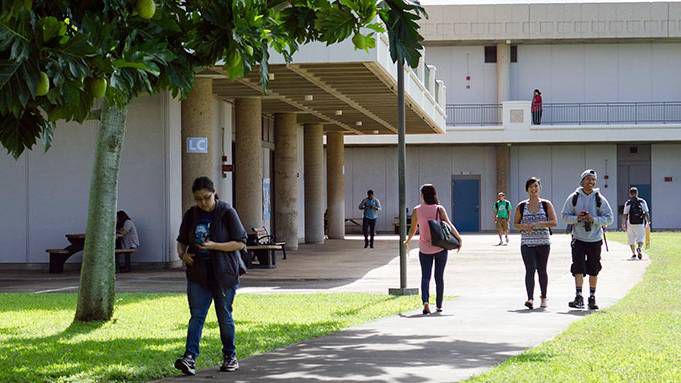Gov. Josh Green signed a new law last week that makes it easier for people with developmental disabilities who are enrolled in college certificate programs to access educational opportunities and funding.
Under provisions of the new Act 57 (formerly Senate Bill 1151, Senate Draft 2, House Draft 1, Conference Draft 1), University of Hawaii community college students enrolled in certificate programs can participate in the Hawaii Promise Program without having to first complete an annual Free Application for Federal Student Aid.
The bill was introduced by Sens. Angus McKelvey, Henry Aquino, Stanley Chang, Chris Lee and Joy San Buenaventura.
Established in 2017, Hawaii Promise provides free in-state tuition for qualified UH community college students with financial needs, covering tuition, fees, books and supplies.
In the 2020-21 school year, more than 1,800 students from seven UH community colleges statewide benefitted from almost $3 million in Hawaii Promise scholarships.
The program was intended to function as a “last dollar” scholarship to cover financial needs not met by other forms of financial aid. Prior to the enactment of Act 57, students were considered for Hawaii Promise when they submitted their FAFSA application.
While the legislation will benefit all students in certificate programs, supporters say it is particularly significant for students with disabilities, who may face additional hardships in completing the FAFSA.
McKelvey, one of the co-authors who helped establish the original Promise Program, said the new law is an extension and growth of the program, ensuring that its benefits reach as many eligible students as possible.
In its testimony supporting the bill, Daintry Bartoldus, executive administrator of the State Council on Developmental Disabilities, discussed findings from a Self Advocacy Advisory Council of more than 200 individuals with intellectual and developmental difficulties.
“By talking with them, we have learned the ones who attended higher education did it on a half-time basis,” Bartoldis said. “The majority enrolled in certificate programs. When we asked if they applied for the Promise Program, some stated they had not because they had to first complete the Free Application for Federal Student Aid, which they thought they could not apply for it because they weren’t enrolled full-time at the Community College. The other self-advocates expressed that the process of applying for the FAFSA was too hard.
“Eliminating the need to apply for the Free Application for Federal Student Aid if the student would only qualify for the Promise Program and expanding the Promise Program to certificate programs allows I/DD (Intellectually/Developmentally Disabled) individuals to gain employment skills and promote independence,” she testified. “This measure would increase the opportunity for our population to better integrate and participate in the community through achieving higher education.”
According to the Special Education Advisory Council, about 22% of all special education students enrolled in higher education in 2021, less than half the rate of students without disabilities.
“This bill will benefit many students with disabilities in community college certificate programs by providing greater access to financial support through the Promise Program and the opportunity to learn practical skills that can lead to better employment outcomes,” said SEAC chair Martha Guinan.
Michael Tsai covers local and state politics for Spectrum News Hawaii. He can be reached at michael.tsai@charter.com.



